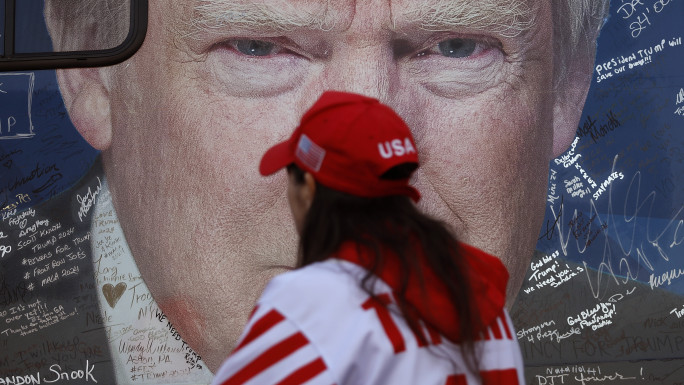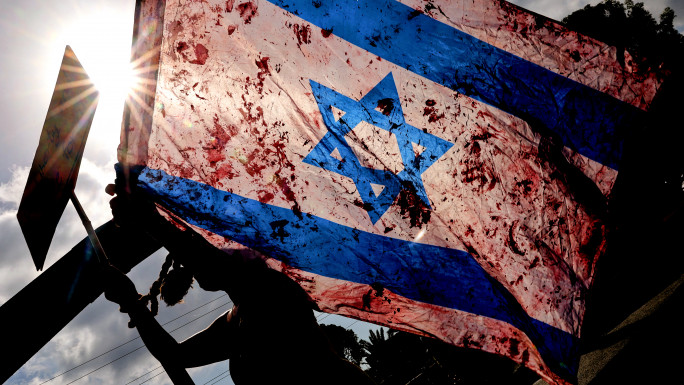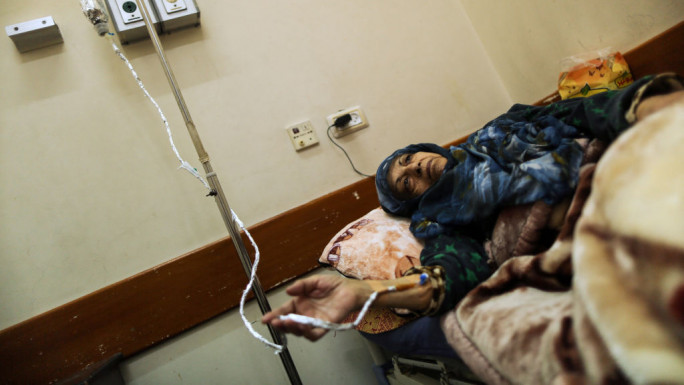Air pollution in Kabul has claimed the lives of 17 people this week
Afghan health officials in Kabul said on Monday that 17 people have died as a result of complications arising from respiratory illness over the past week, while thousands of others have been hospitalised.
Hazardous levels of air pollution continues to claim the lives of those living in the Afghan capital, where pollution has become a daily concern for residents.
Amid a campaign to tackle the harm caused by pollution, face masks have been distributed.
Dr Fida Mohammad Paikan, Deputy Minister of Public Health, told reporters on Monday that a total of 8813 people visited government hospitals suffering from lung conditions.
Leila Samani, spokesperson for the Afghan Environmental Protection Agency, said that officials, following presidential orders, have begun a crackdown on commercial areas of the city thought to be main contributors of Kabul’s air pollution.
Those who run wedding halls, public baths and other public and commercial spaces have all been warned against burning scrap tires and plastics.
According to environmental officials, 28 businesses, including wedding halls and shops, have been closed down for causing heat-related polution.
Twitter Post
|
Fighting the phenomena in Kabul is no easy task.
Rampant poverty and limited access to electricity force many in the city to burn coal to cook and keep warm. Very few can afford gas to heat their homes.
Officials say that the use of non-standard fuel, lack of green spaces, undeveloped roads and unlicensed housing settlements are among the factors contributing to the smoggy and polluted air in Kabul.
The Afghan government has plans to roll out a public awareness campaign in the city's mosques, which will see nearly 22 government agencies working together to combat the public health problem.
Kabul's seasonal pollution is the root cause of the majority of air-borne respiratory diseases in the city, and environmental activists have begun distributing masks.
Kabul is one of the worst-polluted cities in the world.
Shahrzade Akbar, president of the Afghanistan Independent Human Rights Commission, wrote on Twitter: "Kabul's air is not safe to be inhaled. I constantly feel tired and lethargic. My son coughs all night and we can't bring ourselves to go outside for a walk."
![Getty]Baby in Kabul suffering from respiratory illness Getty]Baby in Kabul suffering from respiratory illness](/sites/default/files/styles/large_16_9/public/media/images/9B0814D4-5B75-430E-8C01-209890E6762C.jpg?h=d1cb525d&itok=nxBIveN8)




 Follow the Middle East's top stories in English at The New Arab on Google News
Follow the Middle East's top stories in English at The New Arab on Google News
![John Thune [Getty]](/sites/default/files/styles/image_330x185/public/2066760536.jpeg?h=a5f2f23a&itok=DQxzSizV)
![A picture shows the occupied West Bank village of al-Eizariya behind Israel's Apartheid wall on the outskirts of East Jerusalem [Getty Images]](/sites/default/files/styles/image_330x185/public/2022-11/GettyImages-1200150515.jpg?h=eec5a94e&itok=Q0NIO_eW)
![The op-ed used spurious Biblical justifications to lay claim to the southern Lebanese city of Sidon [Getty]](/sites/default/files/styles/image_330x185/public/2024-11/GettyImages-149261870.jpg?h=69f2b9d0&itok=d2wjWSis)